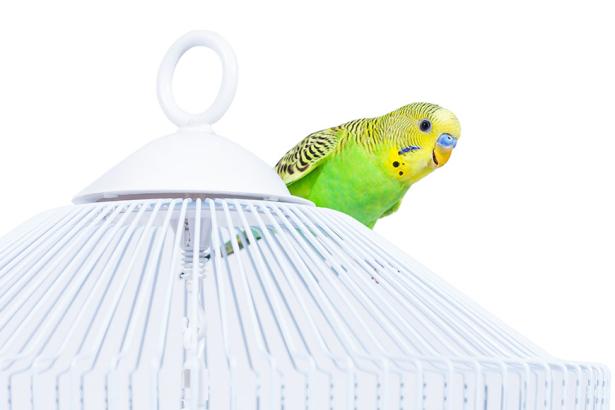Pet birds face many hidden dangers in homes. Their small size and sensitive systems make them vulnerable to everyday items that seem harmless. Protecting them requires attention to toxic fumes, open water, electrical risks, and other household hazards.
Toxic Fumes Can Be Deadly
Birds have delicate lungs that cannot handle strong smells or chemical fumes. Even a small amount of exposure can cause serious illness or death.
Non-stick cookware is one of the most dangerous items in a home with birds. When overheated, it releases fumes that can kill a bird within minutes. Cleaning sprays, air fresheners, and scented candles also contain chemicals that harm birds. Smoke from cigarettes or burnt food lingers in the air and causes breathing problems.
Even materials treated with PFAS, often found in stain-resistant furniture and waterproof fabrics, may add to air contamination inside a home. These chemicals, also present in AFFF firefighting foam, have raised concerns for humans due to their links to cancer and other serious illnesses. Firefighters and other impacted individuals are now filing lawsuits to seek compensation for diseases caused by AFFF exposure, and birds could be even more at risk due to their sensitivity.
Open Water Puts Birds in Danger
Birds do not swim well and can drown quickly. A single accident in standing water can be fatal. Open toilet lids, full sinks, and bathtubs are major risks. Even a glass of water left out on a table can be dangerous for a small bird. Birds may misjudge the surface and fall in, unable to climb out.
Aquariums also pose a threat. A bird that lands on the water’s surface may not escape before exhaustion sets in. Always supervise birds when they are outside their cages.
Electrical Wires and Small Openings
Birds chew on everything. Wires and cords are easy targets, but they carry serious risks. A single bite into a live wire can cause a deadly shock. Power strips and plugged-in appliances add to the danger. Keeping wires hidden and unplugging devices when not in use can prevent accidents.
Small openings between furniture or behind appliances create another problem. A bird can squeeze into a tight space and become trapped. Blocking gaps and checking behind furniture helps keep birds from getting stuck.
Windows, Mirrors, and Ceiling Fans
Glass is invisible to birds. They may try to fly through windows or mirrors, hitting them at full speed. Injuries range from mild to fatal. Stickers or curtains help birds recognize glass as a solid barrier.
Ceiling fans are another major hazard. A bird flying into a spinning fan can suffer life-threatening injuries. Turning fans off before letting birds out of their cages prevents tragic accidents.
Other Pets Can Be a Threat
Dogs, cats, and other animals may not mean to harm a bird, but their instincts take over. Even a playful paw swipe can cause serious injury. Birds should never be left alone with other pets. Separate spaces keep everyone safe.
Keep Your Home Safe for Birds
Birds rely on their owners to protect them. Removing toxins, covering open water, hiding wires, and preventing collisions create a safer home. A few small changes can mean the difference between life and death for a pet bird.

